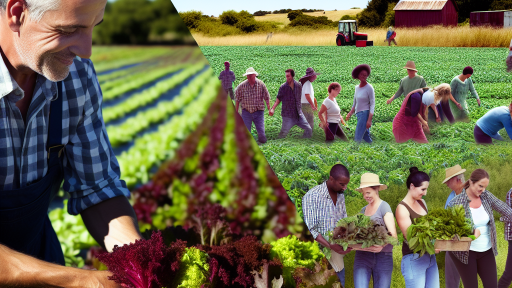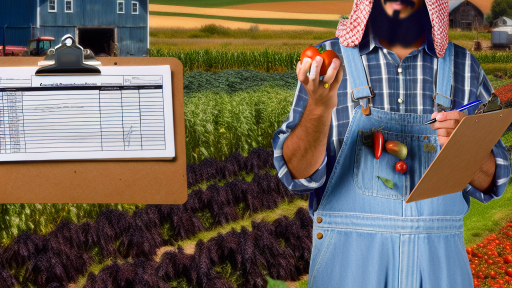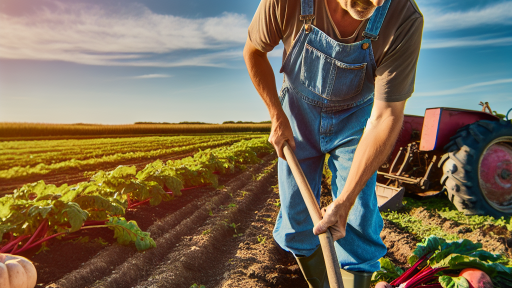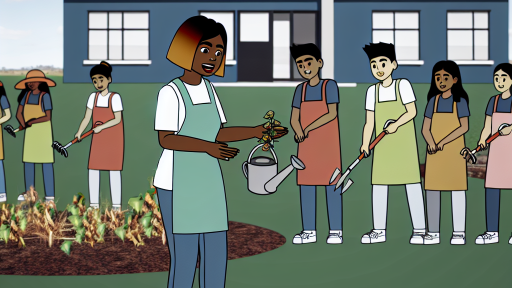Understanding the Concept of Agri-Tourism
Defining Agri-Tourism
Agri-tourism integrates agriculture and tourism industries.
This unique concept allows visitors to experience farm life.
Farmers welcome guests for educational and recreational activities.
Activities typically include farm tours, picking fruits, and workshops.
The Importance of Agri-Tourism for Farmers
Agri-tourism serves as an additional income source for farmers.
It helps diversify farm revenues, reducing financial risks.
Moreover, it fosters connections between consumers and food producers.
This connection enhances awareness of local food systems.
Benefits for Visitors
Visitors gain hands-on experience in agricultural practices.
They learn about sustainability and food sources during their visits.
Additionally, families create lasting memories through farm activities.
It provides an opportunity for educational outings and fun.
Community Engagement and Support
Agri-tourism fosters community engagement and cohesion.
Local businesses benefit from increased tourist traffic.
This growth can contribute to regional economic development.
Transform Your Agribusiness
Unlock your farm's potential with expert advice tailored to your needs. Get actionable steps that drive real results.
Get StartedFurthermore, events like farm festivals unite and energize communities.
Environmental Awareness
Agri-tourism promotes environmental education among visitors.
Participants learn about sustainable farming practices.
This awareness encourages eco-friendly behavior in daily lives.
Overall, it fosters a culture of respect for agriculture and nature.
Identifying Potential Agri-Tourism Activities
Types of Farms for Agri-Tourism
Different farms can offer unique agri-tourism experiences.
Farms range from crop production to livestock raising and specialty farms.
Understanding farm types helps tailor activities for visitors.
Crops and Produce Farms
Crops and produce farms can engage visitors through various activities.
You can organize pick-your-own days for fruits and vegetables.
Farmers can host guided tours of their fields and crop types.
Cooking classes using fresh produce also attract many guests.
Members of the community may enjoy seasonal festivals at these farms.
Livestock Farms
Livestock farms offer rich, interactive experiences for visitors.
Petting zoos featuring farm animals create delightful interactions.
Educational tours can teach guests about animal care and welfare.
Feeding sessions can be a fun way for children to learn.
Farmers can also consider hosting livestock shows or contests.
Specialty Farms
Specialty farms provide unique opportunities for agri-tourism.
Winery tours allow guests to taste and learn about wine production.
Herb and spice farms can offer workshops on culinary uses.
Organic and sustainable farms are great for eco-focused tours.
Additionally, flower farms can host beautiful, picturesque events.
Combining Activities
Combining various activities enhances the visitor experience.
Showcase Your Farming Business
Publish your professional farming services profile on our blog for a one-time fee of $200 and reach a dedicated audience of farmers and agribusiness owners.
Publish Your ProfileFarmers can create farm-to-table dining events featuring local produce.
Workshops can include cooking demonstrations and crafting sessions.
Seasonal festivities can feature a mix of local products and attractions.
Collaborating with local artisans adds depth to the farm’s offerings.
Marketing Agri-Tourism Events
Effective marketing is crucial for promoting agri-tourism activities.
Farmers can use social media to reach a wider audience.
Collaborations with local tourism boards can generate interest.
Creating engaging content about activities can draw visitors in.
Additionally, farmers should consider building a user-friendly website.
Creating a Welcoming Environment for Visitors on the Farm
Emphasizing Warmth and Hospitality
First impressions matter significantly for farm visits.
Create a welcoming atmosphere right at the entrance.
Friendly staff members should greet visitors with smiles.
Provide clear signage to direct guests effectively.
Consider offering complimentary refreshments as a warm gesture.
Designing an Inviting Space
Your farm’s layout should enhance visitor experience.
Utilize vibrant colors in your decorations and signage.
Incorporate comfortable seating areas for guests to relax.
Use natural elements like flowers to beautify the surroundings.
Ensure pathways are easy to navigate for everyone.
Showcasing Farm Activities
Visitors appreciate engaging experiences during their visit.
Offer guided tours that highlight farm operations.
Include interactive stations where guests can participate.
Host demonstrations that showcase produce or livestock care.
Encourage hands-on activities like fruit picking or planting.
Ensuring Safety and Comfort
Safety should be a top priority for all visitors.
Regularly inspect equipment and facilities for potential hazards.
Clearly mark areas that are accessible and those that are not.
Provide shaded areas and water stations for hot days.
Maintain clean restrooms to enhance visitors’ comfort.
Gathering Feedback for Improvement
Feedback is essential for enhancing visitor experiences.
Set up easy ways for guests to share their thoughts.
Consider using comment cards or online surveys.
Take notes on suggestions to implement in the future.
Show appreciation for feedback by acting on reasonable requests.
See Related Content: Managing Inventory for Direct-to-Consumer Farms
Developing Educational Programs and Workshops for Visitors
Creating Interactive Learning Experiences
Interactive learning programs engage visitors effectively.
Workshops can cover various agricultural topics.
Examples include sustainable farming techniques and crop cultivation.
Allowing hands-on experiences enhances understanding.
Moreover, interactive formats foster deeper connections with agriculture.
Showcase Your Farming Business
Publish your professional farming services profile on our blog for a one-time fee of $200 and reach a dedicated audience of farmers and agribusiness owners.
Publish Your ProfileCollaborating with Local Experts
Partnering with local farmers provides authenticity.
Experts share their knowledge and experiences with visitors.
This collaboration enriches the educational content offered.
Additionally, showcasing local success stories inspires attendees.
Incorporating Technology into Programs
Using technology can enhance educational offerings.
Consider virtual tours for remote visitors.
Moreover, augmented reality can illustrate farming processes.
This integration keeps visitors engaged and informed.
Offering Customized Workshops
Customized workshops cater to different audience needs.
Consider topics like organic gardening or livestock care.
This flexibility attracts diverse visitor groups.
Furthermore, tailoring programs enriches the learning experience.
Evaluating and Improving Programs
Regular feedback is essential for program improvement.
Surveys and questionnaires can provide insights from attendees.
Moreover, analyzing feedback helps identify areas for enhancement.
Continuous evaluation ensures high-quality educational programs.
You Might Also Like: Effective Crop Rotation Strategies for Small Farms
Marketing Agri-Tourism Offerings Through Social Media and Traditional Channels
Utilizing Social Media for Promotion
Social media platforms can amplify your agri-tourism offerings.
Start by creating visually appealing content to attract visitors.
High-quality photos of farm activities engage potential tourists.
Additionally, sharing videos of unique experiences can enhance interest.
Use Instagram and Facebook to reach a wider audience.
Engage with followers by asking questions and encouraging interaction.
Host contests or giveaways to increase follower engagement.
Collaborate with local influencers for greater visibility.
Regularly post updates about events to keep your audience informed.
Exploring Traditional Marketing Channels
While digital strategies are effective, traditional marketing still matters.
Create brochures that showcase your farm’s unique experiences.
Distribute these at local tourist centers and hotels.
Consider advertising in local newspapers and magazines.
Attend agricultural fairs and farmer markets to showcase your offerings.
Network with other local businesses to create synergistic promotions.
Offering special packages through travel agencies can attract more visitors.
Utilize word-of-mouth marketing by encouraging satisfied customers to spread the word.
Integrating Online and Offline Strategies
Combining online and offline marketing amplifies your reach.
Encourage visitors to share their experiences on social media.
Provide incentives for followers who tag your farm in posts.
Direct traffic from your social media pages to your physical location.
Foster an inviting atmosphere that encourages positive reviews and recommendations.
Track the effectiveness of each channel to refine your strategy.
Showcase Your Farming Business
Publish your professional farming services profile on our blog for a one-time fee of $200 and reach a dedicated audience of farmers and agribusiness owners.
Publish Your ProfileUse feedback to continuously improve your services and offerings.
Delve into the Subject: Top Agri-Tourism Activities for Farm Visitors
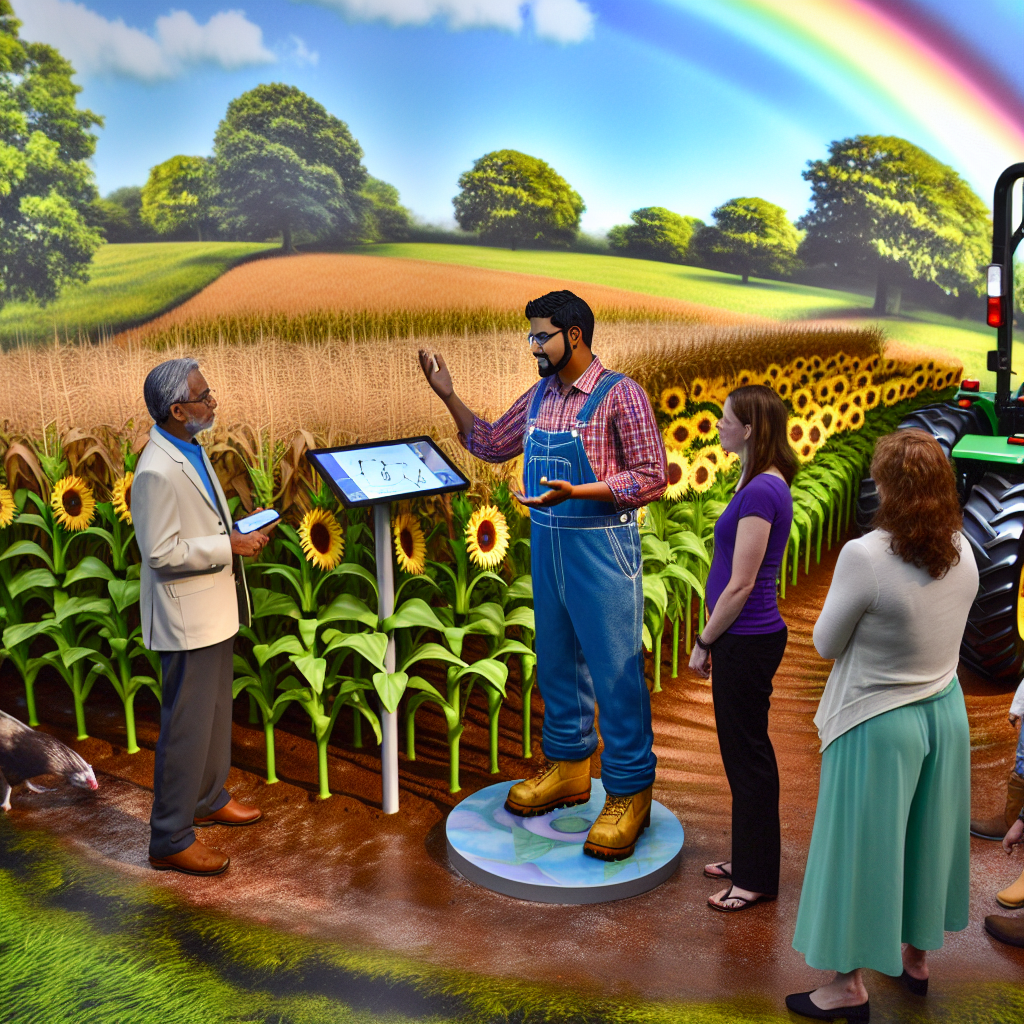
Collaborating with Local Businesses and Attractions
Creating Partnership Opportunities
Forming partnerships enhances the appeal of farm visits.
Local businesses can provide unique experiences for visitors.
For instance, local restaurants might feature farm-fresh ingredients.
Additionally, they could offer promotions for visitors from the farm.
Integrating Activities and Events
Co-creating activities can boost engagement for visitors.
Consider hosting seasonal festivals that celebrate local produce.
This could include harvest festivals or artisan fairs.
Such events encourage community participation and excitement.
Highlighting Nearby Attractions
Promoting local attractions increases the variety of visitor experiences.
Nearby wineries, hiking trails, and historical sites can attract guests.
Incorporating these attractions into farm visits creates memorable experiences.
Consider guided tours that combine farm visits with local highlights.
Providing Coordinated Marketing Efforts
Joint marketing efforts can expand reach to potential visitors.
Collaborating on social media campaigns increases visibility.
Sharing newsletters with updates can keep audiences informed.
This ensures that the farm and local businesses benefit mutually.
Creating Special Packages and Discounts
Offering bundled packages attracts more visitors to both the farm and local businesses.
Discounts for combined visits enhance value for tourists and locals.
Such initiatives encourage families to spend more time in the area.
Ultimately, these collaborations strengthen the local economy.
See Related Content: Animal Welfare In Modern Farming
Ensuring Sustainability and Responsible Tourism Practices on the Farm
Understanding Sustainable Practices
Sustainable practices promote the health of the farm ecosystem.
These methods focus on conserving resources and minimizing waste.
Farmers should employ crop rotation to improve soil health.
Additionally, using organic fertilizers enhances soil biodiversity.
Integrating Agri-Tourism with Sustainability
Agri-tourism can support sustainability if managed correctly.
Promote awareness of sustainable agriculture among visitors.
Offer educational tours that highlight eco-friendly practices.
Encourage participation in farm activities, such as planting.
Conservation Efforts
Conserving water is critical for sustainable agriculture.
Implementing rainwater harvesting systems benefits both farm and nature.
Moreover, preserving native plant species supports local wildlife.
Farmers can create wildlife habitats on their properties.
Community Engagement and Support
Engaging the local community fosters a sense of stewardship.
Farm visits should include opportunities for local interaction.
Hosting workshops can educate the public about responsible farming.
Collaboration with local businesses enhances the tourism experience.
Evaluating and Improving Practices
Regularly assessing practices helps identify areas for improvement.
Showcase Your Farming Business
Publish your professional farming services profile on our blog for a one-time fee of $200 and reach a dedicated audience of farmers and agribusiness owners.
Publish Your ProfileFarmers should seek feedback from visitors about their experiences.
Implementing suggestions can enhance sustainability efforts.
Continual learning and adaptation are key to responsible tourism.
Evaluating Visitor Feedback to Improve Future Farm Visit Experiences
The Importance of Visitor Feedback
Visitor feedback is essential for enhancing farm experiences.
It provides insights into what visitors enjoy and what needs improvement.
Furthermore, feedback can reveal unexpected aspects of the visit.
Thus, gathering feedback helps shape future activities.
Methods for Collecting Feedback
Several effective methods exist for collecting visitor feedback.
Surveys administered at the end of the visit are highly valuable.
Digital platforms can streamline the survey process.
Additionally, engaging visitors through informal conversations yields rich insights.
Social media offers another useful channel for feedback collection.
Analyzing Feedback Data
Once collected, analyzing feedback data is crucial.
Look for common themes that emerge from visitor comments.
Quantitative data from surveys can highlight trends over time.
Moreover, qualitative feedback provides context to numerical results.
It’s important to categorize feedback to draw meaningful conclusions.
Implementing Changes Based on Feedback
Implementing changes based on visitor feedback demonstrates responsiveness.
First, prioritize feedback that aligns with the farm’s goals.
Then, consider budget and resource constraints before making adjustments.
Communicate changes to visitors, showing that their input matters.
Ultimately, continuous improvement enhances visitor satisfaction and loyalty.
Monitoring New Changes
Once changes are implemented, monitor their effects closely.
Gather new feedback to evaluate the success of adjustments.
Keeping track of visitor experiences can lead to ongoing enhancements.
This cyclical process ensures that farm visits remain engaging and relevant.
Additional Resources
The Opportunity for Agritourism Development in New Jersey
Farm to Table: Building Local and Regional Food Systems – SARE

